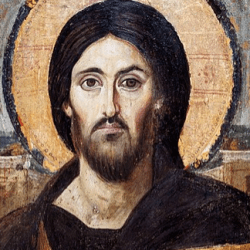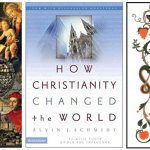The blogosphere is full of discussions of two-kingdom theology and neo-Calvinism. Especially with the publication of David VanDrunen’s Living in God’s Two Kingdoms, and John Frame’s recent publication against so-called “Escondido Theology”, the Reformed seem to all be talking about views of church and state.
What bothers me, is that once again, the Reformed are talking about “Lutheran” views without actually looking at Lutheran sources. The theologians at Westminster Seminary and California are seen as “Lutheran” (or most often caricatures of these theologians), and thus Lutheran theology is judged on that basis. But are these theologians really Lutheran in regard to this issue of two kingdom theology? It is my contention that they are not.
In modern discussions of two kingdom theology, with such writers as Michael Horton, David VanDrunen, Daryl Hart, and Jason Stellman, there seems to be a conglomeration of Luther’s two kingdom approach and American church/state relations. This strict separation between the Christians involvement in the two realms is far from the Lutheran traditions definition of two kingdom theology. Often in the VanDrunen approach, the church and state are separate to such an extent that there is no interaction between the two kingdoms. The public square becomes something of a secular no man’s land, wherein one’s Christian presuppositions and convictions are not to be discussed. So what is the actual Lutheran approach to the subject?
For Luther, God rules the church, and the world in two different ways. God rules the church through the gospel. This gospel is accepted through the free response of faith (through the work of the Holy Spirit in the means of grace), and brings the forgiveness of sins and spiritual life. The church is not a place of compulsion. However, the state contains both believer and non-believer; those who have accepted the gospel and those who reject it. Since faith is a free response, and only comes through the work of the Spirit, it cannot be forced by the sword. Therefore, the gospel cannot be enforced by the state.
The state began after the fall. When Cain killed his brother, God did not choose to kill Cain but protected him, so that no one would be allowed to murder Cain. Thus began the state wherein the rights of both believer and non-believer are defended. Genesis 9 repeats this principle, as God makes a covenant with all of creation and promising punishment to all who commit murder.
So if the state contains both believer and unbeliever, and God desires to protect even the unrepentant sinner, how does he rule? It can’t be through the gospel, because that only applies to Christians. This is why God operates through the law in the state. In Romans thirteen, Paul writes that even a pagan emperor is an instrument of justice. He is placed in power to reward civil obedience, and punish disobedience. This maintains good order, and external righteousness (while never judging the heart.)
For Luther, it can be said even that the state exists primarily for the unbeliever. Believers do not need compulsion to obey laws, because through faith they freely love and serve their neighbors.
So does this mean that Christians should be quietists, and ignore what happens in the state since it only applies to unbelievers? Not at all! God is the king of both the church and the state, and calls Christians to be involved in the civil realm. It is imperative in the command to love one’s neighbor that we are involved in the state to such an extent that we promote what benefits others. For example, Christians have a duty to fight abortion, not to bring about the kingdom of God on earth (this is confusing the two realms, mixing law and gospel) but because we love those among us who are unborn. I have heard some Reformed “two kingdom” proponents argue that this issue shouldn’t be discussed because it’s an issue of the state rather than the church. One couldn’t be any farther from Luther’s meaning of two kingdom theology!
After all, Luther was greatly concerned about the political issues of his day. He wrote about usury, just war, treatment of the poor, and several other important political issues. He even urged the state to establish Christian schools in Germany.
Lutherans are also not negligent when it comes to Christian interaction with culture. Lutheran theology is thoroughly incarnational, professing that the finite is capable of the infinite. God comes to us in real material, concrete ways through bread, wine, water, and human speech. Thus we relish the material gifts that God gives us. We love art, liturgy, vestments, and music. The Lutheran church has sometimes been called the “church of the musicians.” The Reformed church does not have this same artistic tradition due to Calvin’s abhorrence of images and instrumentation.
So, having explained the Lutheran interpretation in contrast to the Escondido two kingdom approach, what is different about a Lutheran approach to culture and many of the Reformed transformationalist approaches out there? Well, it seems to come down to one issue: eschatology. For the Lutheran, the kingdom of God will only be established upon the return of Christ. It exists now only in proclamation and in the sacraments. Our work in the culture does not establish God’s kingdom on earth, but is motivated by a love for our neighbors because we are already in God’s kingdom through faith. This is why I can work with both Christian and non-Christian for the establishment of peace and justice in the world.
For the Reformed transformationalists and neo-Calvinists, God’s kingdom comes gradually through a redemption of culture, through the work of the church. The problem I have with this approach is not that it engages Christians in culture and the state, but that it simply isn’t consistent with the nature of the Church in this age. 1 Peter describes us as foreigners, and exiles in the world. The fact is Christians will always be in the minority until Christ returns. We will never be able to transform culture and take hold of the majority of the earth. The second problem I have is its inherent synergism. Kingdom building is the work of God alone, as he comes to us in word and sacrament and will consummate upon Christ’s return. All we can do is tell of this coming kingdom, and proclaim the forgiveness of sins which it brings.
I hope this brings some greater understanding of what we believe and how the so called “Escondido Theology” is not representative of our tradition. A Lutheran two kingdom approach is a centrist position avoiding both the extreme of political quietism or keeping one’s Christian proclamation in the church alone,
and using the church as a vehicle to transform culture.











